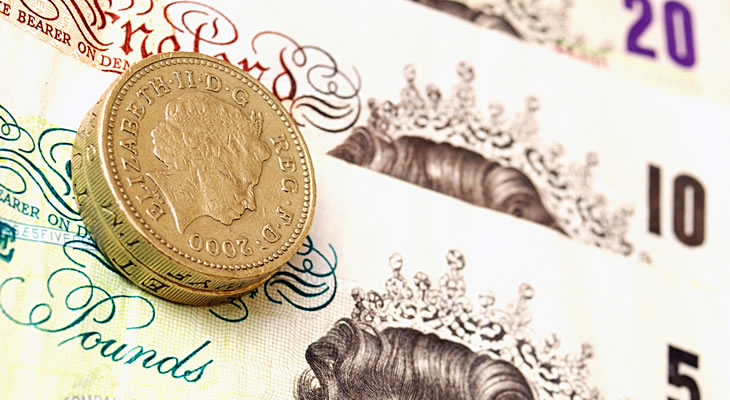Update: The Pound is making small gains against the Euro and US Dollar today. The Conservatives have performed well in the local council elections, suggesting that the party is on track for a landslide victory in the general election next month.
Yesterday the Euro was buoyed by fresh hopes Emmanuel Macron will triumph over Marine Le Pen in the French Presidential Election after 63% of viewers who watched Wednesday night’s TV debate judged Macron to be the more convincing of the two candidates. While Nigel Farage has endorsed Le Pen, former US President Barack Obama has released a short video in which he backs Macron for the French presidency.
According to the latest polls, support for Macron has edged back up to 62%, leaving Marine Le Pen on 38%.
Read original article below…
Today’s UK construction PMI could help improve the outlook for the economy in the second quarter of the year.
The index is expected to edge down -0.2 points to 52, but yesterday’s manufacturing index was also anticipated to weaken and instead rose to a three-year-high of 57.3.
‘Spring has ushered in green shoots of growth with April marking the ninth consecutive increase in manufacturing employment,’ explained Duncan Brock of the Chartered Institute of Procurement & Supply. ‘The calling of a snap election has failed to dampen the spirits of industry with output growing at the fastest rate in three months.’
Another solid reading from the construction survey will likely raise hopes that tomorrow’s services index will also show a strong rise; this would be welcome after the GDP figures showed that service sector output fell on the quarter from 0.8% to 0.3%.
While a solid trio of PMIs this week would help allay fears that the second quarter will continue the slowdown seen at the beginning of the year, analysts will be quick to point out that a strong beginning does not necessarily indicate a rebound over the next three months, which could slow the pace of GBP EUR gains.
Will Eurozone GDP Help Firm Outlook on Economic Recovery?
Yesterday’s finalised Markit manufacturing PMIs showed that Eurozone factory sector growth accelerated to a six-year high overall.
‘Eurozone manufacturers reported buoyant business conditions in April, signalling an encouragingly solid start to the second quarter,’ commented Markit Chief Business Economist Chris Williamson. ‘The latest survey readings indicate that manufacturing is growing at an annual rate of approximately 4-5%, which should make a significant contribution to overall economic growth.’
Today’s German unemployment and Eurozone GDP data could add to the positive economic signs coming out of the currency bloc and indicate that the recovery continues to pick up speed.
German unemployment is expected to have fallen by -12,000 last month; while this will not be enough to lower the joblessness rate from 5.8%, it will mark the 21st consecutive month in which the number of people out of work in the Eurozone’s powerhouse economy has declined.
Meanwhile, the flash first-quarter GDP readings for the Eurozone are expected to show that economic growth edged up from 0.4% in the final three months of 2016 to 0.5% in the first three months of 2017.
Year-on-year GDP is expected to hold steady at 1.7%.
GBP EUR Exchange Rate Forecast; Will Greek Worries Dampen Euro Strength?
Both the Pound and the Euro could potentially be facing strong tailwinds today after the morning’s data is released.
As well as suggesting economic recovery, another impressive PMI rise from the UK and strong unemployment and GDP figures from the Eurozone could increase pressure on the Bank of England (BoE) and the European Central Bank (ECB) respectively to tighten monetary policy.
These rising hopes of an interest rate hike would likely support both currencies, meaning GBP EUR could remain stuck around opening levels of 1.18.
However, in terms of the balance of risks, the Pound is still supported by expectations that the general election will result in a stronger Conservative party majority, which would smooth out the Brexit process.
Meanwhile, concerns over the Greek bailout continue to weigh on the Euro; a deal was agreed yesterday by Athens to implement more reforms and austerity measures in exchange for the latest round of funding, but the International Monetary Fund (IMF) repeated its call for debt relief.
This suggests that, while the Greek government has made progress with Eurogroup, the deadlock between Eurozone creditors and the IMF – which won’t participate in the next bailout unless steps are taken to reduce the debt pile – remains in place.


Comments are closed.